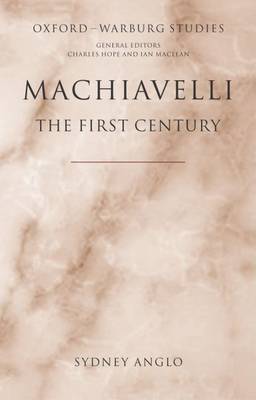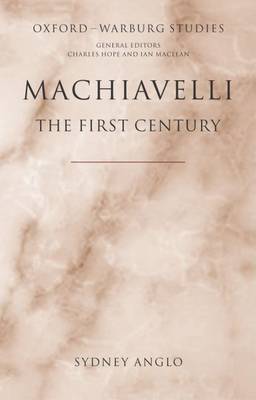
- Afhalen na 1 uur in een winkel met voorraad
- Gratis thuislevering in België vanaf € 30
- Ruim aanbod met 7 miljoen producten
- Afhalen na 1 uur in een winkel met voorraad
- Gratis thuislevering in België vanaf € 30
- Ruim aanbod met 7 miljoen producten
Zoeken
€ 436,45
+ 872 punten
Omschrijving
Between 1513 and 1525 Niccolò Machiavelli wrote a series of works dealing with political, military, and historical matters. One of these (the 'Arte della guerra') was published in 1521, but the rest of his major writings were not published until 1531-2, nearly five years after his death. They continued to be reissued regularly, well into the early seventeenth century. The popularity of Machiavelli's books, the variety of his themes, the different contexts within which he was studied, the range of readers' interests, and the fact that his name entered the vocabulary of every European language - all make his early reception a fruitful field of enquiry. Historians of ideas have tended to tidy up the past in order to make it comprehensible but Sydney Anglo is concerned with heterogeneity, and with the often irrational and emotional aspects of sixteenth-century thought. Basing his research entirely upon primary sources he quotes extensively in the conviction that, in a battle of
words, the words themselves and their tone convey more than summaries of intellectual abstractions.
words, the words themselves and their tone convey more than summaries of intellectual abstractions.
Specificaties
Betrokkenen
- Auteur(s):
- Uitgeverij:
Inhoud
- Aantal bladzijden:
- 778
- Taal:
- Engels
- Reeks:
Eigenschappen
- Productcode (EAN):
- 9780199267767
- Verschijningsdatum:
- 1/09/2005
- Uitvoering:
- Hardcover
- Formaat:
- Genaaid
- Afmetingen:
- 218 mm x 147 mm
- Gewicht:
- 1049 g

Alleen bij Standaard Boekhandel
+ 872 punten op je klantenkaart van Standaard Boekhandel
Beoordelingen
We publiceren alleen reviews die voldoen aan de voorwaarden voor reviews. Bekijk onze voorwaarden voor reviews.











